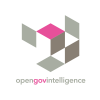-
0 comments
The project addresses the problem of fostering innovation to modernize Public Administration. It proposes a framework, including a methodology and an ICT architecture. The framework is based on Linked Open Statistical Data (LOSD) and co-creation of value. At the current stage the developed tools concern mainly the LOSD creation, expansion and exploitation. A figure showing which of the modules of the OpenGovIntelligence (OGI) architecture have been developed until now would benefit understanding better the status of the project. The pilots are well-organized and are already providing interesting results.
The advancement with respect to the state-of-the-art is significant and the project contributes to the expected impacts detailed in the Description of Work and the respective Call.
The most relevant objectives of the project which provide better scientific and technological breakthrough potential are the following:
- a methodology for innovation supported by software tools and driven by Linked data;
- involvement of different stakeholders in value co-creation;
- application in the Public Administration sector.
Both the approach and the methodology are appropriate and the objectives of the project are still achievable even if the part of the architecture already implemented seems still limited.
The methodology and the software tools for Linked Open Statistical Data are the most significant results in terms of potential for dissemination and exploitation. Local Public Administrations, citizens association and SMEs are the group of stakeholders that could exploit them. The work is sufficiently disseminated and exploited by means of several channels (social media, MOOC, workshops, …) The project results can and should be re-used in the same and in different domains and countries.
Existing tools to develop ideas are very simple, in an early stage and with limited automatic support to support creativity. My opinion is that, due to the ambitious objectives of the pilots, they cannot be adopted as they are. For instance, do existing tools exploit the potential of LOSD?
A new generation of tools to develop ideas is needed for the future. I suggest the project to face also this new challenge.

